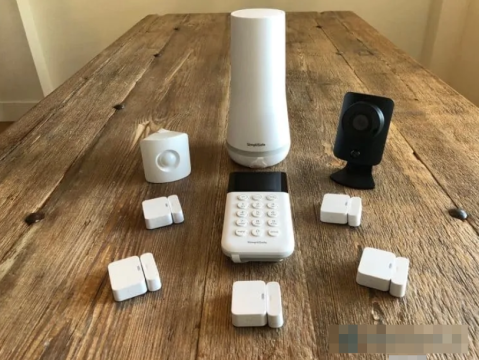Choosing a Home Security System
Whether you need to protect a small house or a large estate, selecting the right security system is critical. The primary options include:
- Autonomous Systems: Cost-effective and suitable for basic needs.
- GSM Systems: Provide remote alerts via mobile networks.
- Centralized Monitoring (Pult Systems): Ideal for urban homes but less practical for remote locations.
Each system can be tailored to your requirements, but a foundational setup usually includes:
- Control panel.
- Sensors (motion, door/window, glass break).
- Audible/visual alarms.
- Power supply or backup.
Key Considerations for Home Security
Sensor Placement
- Windows: Install magnetic contact sensors for opening and acoustic sensors for glass break detection.
- Doors: Secure with both motion and magnetic contact sensors.
- Interior Zones: Use motion detectors in hallways and common areas.
Control Panel Selection
The control panel's capacity determines the number of zones (or circuits) it can manage. For most homes:
- A 4-zone panel is sufficient for basic setups.
- Larger homes may require panels with 8-20 zones.
Alarm Types
- Outdoor Alarms: Designed to withstand weather conditions.
- Indoor Alarms: Focus on loudness and visibility.
Wireless vs. Wired Systems
Wireless Systems
- Pros:
- Easy to install and scale.
- Addressable (unique ID for each sensor).
- Flexible and reconfigurable.
- Cons:
- Higher cost.
- Battery maintenance required.
- Signal reliability depends on environment.
Wired Systems
- Pros:
- Cost-effective.
- Reliable and stable connections.
- Compatible with various brands and sensors.
- Cons:
- Complex installation.
- May disrupt home aesthetics.
GSM Security Systems
GSM systems connect to mobile networks to send alerts and updates. They’re perfect for remote monitoring.
Key Features:
- Instant SMS or call alerts.
- Support for additional sensors (e.g., water leak, gas detection).
- Some systems integrate with mobile apps for remote control.
Tips:
- Ensure sufficient mobile network coverage at your home.
- For areas with weak signals, consider dual-SIM systems or GSM repeaters.
- Choose systems with signal monitoring to detect interference or outages.
Security Kits for Homes
For a DIY approach, opt for pre-configured kits. Typical kits include:
- Motion sensors.
- Door/window sensors.
- Control panel with built-in GSM module.
- Sirens and power supply.
Popular Choices:
Wired Kits:
- Cost-effective and reliable for permanent installations.
- Brands: Astra, Bolide Orion, Vers.
Wireless Kits:
- Ideal for homes with modern interiors or rental properties.
- Popular options: Astra RI-M systems.
GSM Kits:
- Combine wireless functionality with mobile network capabilities.
- Look for brands offering app integration and video support.
FAQs About Home Security Systems
1. Should I choose a wired or wireless system?
- Wired: Best for cost-sensitive, permanent setups.
- Wireless: Suitable for flexibility and modern aesthetics.
2. How reliable are GSM systems?
- Reliable in areas with strong mobile network coverage. Use dual-SIM or repeaters in weak signal areas.
3. Can I install the system myself?
- Yes, especially for wireless or pre-configured kits. Professional installation is recommended for complex wired systems.
4. What if my budget is limited?
- Start with a basic system (e.g., motion detectors and door sensors). Add components over time as needed.
Conclusion
Securing your home is a critical investment in your family’s safety. Whether you choose a GSM system, a wired setup, or a wireless solution, ensure it meets your home’s unique needs. Explore affordable and reliable options today at safsale.com

